
Ellen DeGeneres: talk show host or CIA agent?
In 2018, Eric Trump posted a tweet that people interpreted as if he was suggesting that the American talk show host Ellen DeGeneres is part of the Deep State. This suggestion has now become quite the conspiracy theory. This paper analyzes how this theory has come into existence, who the parties involved are, and what this means for their online interactions.
Ellen DeGeneres as part of the Deep State
We often see Donald Trump and his supporters referring to different conspiracy theories: wind turbine syndrome, Spygate, Great Replacement, and so the list goes on. In this case, his son, Eric Trump, tweeted something peculiar.
On the 3rd of January 2018, Eric posted a tweet about the so-called Deep State, another conspiracy theory repeatedly pushed by Donald Trump and others. His tweet, now removed, said: “Shocking... once again, here are the @Twitter “suggestions” of who I should follow. #DeepState”. The text was followed by a picture of the Twitter accounts of Hillary Clinton, Barack Obama, and Ellen DeGeneres apparently presented as follow suggestions to Eric Trump. Trump tweeted this to show how Twitter only suggested that he follow liberals and not right-wing politicians. People interpreted this as if, according to Trump, DeGeneres herself was part of the Deep State. This has not gone unnoticed by Ellen DeGeneres and her team, and it has caused some interesting interactions on Twitter. The conspiracy theory has not left everyone’s mind since, with multiple actors involved.
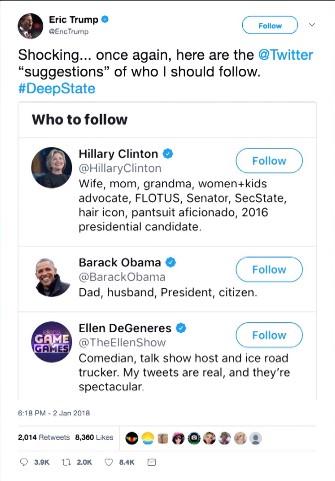
Figure 1: Eric Trump's tweet on Ellen DeGeneres
What is the Deep State?
The concept of "deep state" has been associated with the "military-industrial complex": an informal alliance between a nation's military and the defense industry that provides its supplies. President Dwight D. Eisenhower raised concerns about potential risks stemming from the military-industrial complex in his farewell address in 1961: "In the councils of government, we must guard against the acquisition of unwarranted influence, whether sought or unsought, by the military-industrial complex. The potential for the disastrous rise of misplaced power exists and will persist."
Years later, in the 1990s, the term "deep state" became important in Turkish politics and was crucial for Turkish citizens, scholars, and elites to describe how the military colluded with drug traffickers and hitmen to wage a war against Kurdish insurgents. In a short period of time, the concept of deep state began to spread as a way to describe other political systems in the region, for example in Pakistan, Iran, and Egypt.
The concept of the Deep State has now become part of a global conspiracy theory where actions at the national level are seen as part of some grand plan.
There is, however, a lack of clarity about the concept, and for some, it means nothing more than tenacious military rule. This problem is inherent in the concept itself, which “indicates a hidden set of political actors and institutions that are concealed within the wider, “visible” state” (O’Neil, 2017). The term has come to mean a number of different things to different people: it is often a shorthand explanation for political events like political violence and conflict that defy easy explanation. Things become even more complex due to the issue of confirmation bias, as people tend to search for, interpret, and favor information that confirms their beliefs. This causes the workings of the Deep State to be seen everywhere. The concept of the Deep State has now become part of a global conspiracy theory where actions at the national level are seen as part of some grand plan.
As scholar Patrick H. O’Neil mentions in his essay on the meaning of Deep State, the concept is now seen as “a set of coercive institutions, actors and relationships beyond those formally charged with defense, intelligence and policing. Driven politically by a logic of tutelage and exercising a high degree of autonomy, the deep state justifies itself through the need to defend the nation against purported existential threats” (O’Neil, 2017). In the United States, this explanation of the term Deep State suggests that there is collusion and cronyism existing within the US political system and that there is a hidden government within the legitimately elected government. It is a supposed cabal of powerful, unelected bureaucrats secretly pursuing their own agenda.
Figure 2: "Deep State" in Google Trends
In the figure above, you can see in Google Trends that the interest in Deep State has grown since the beginning of Donald Trump’s presidency on the 20th of January 2017. More people online discuss the Deep State theory and its possible effects on the people in recent years.
Involved parties and their stance
Ellen DeGeneres responded to Eric Trump’s tweet on her talk show. “I just wanna say, Eric, I am honored that you think that I’m powerful enough to be part of a government conspiracy,” she joked. “I am sorry to disappoint you, I am not part of the Deep State. Even if somebody wanted me to be involved, I don’t have that kind of time.” After she also posted the video on Twitter, most of Ellen’s followers responded in the same sarcastic manner. The claim did not make a serious impact on mainstream media, and the discussion has not been mentioned again on Ellen DeGeneres’ show since. Ellen’s executive producer Andy Lassner still jokes about the theory on Twitter, responding to right-wing activists and believers of the Deep State theory and telling them that “Ellen runs the deep state. Keep up.”
However, there is another side to this story. Even though Eric Trump deleted the controversial tweet, the theory that sprang from it is still alive and well. One important actor in this issue is a woman called Tiffany FitzHenry, who is an independent author, public speaker, and screenwriter. She calls herself “an active, vocal and visible Hollywood whistleblower”. On her website, she mentions her experience in Hollywood after studying film and screenwriting, and how she began to truly see how the system actually works from her viewpoint. With her website and articles, she works towards providing the public with meaningful and substantial alternatives to Hollywood. FitzHenry also sells her own merch, which consists mostly of t-shirts with quotes like “Conspiracy Theorists Are Sexy” and “Welcome To The Elite Apocalypse”.
There is also a Twitter account that has been connected to Tiffany FitzHenry, @RightWingWatch. It is an online magazine, and according to its Twitter bio, it functions as “a project of People For the American Way that monitors and exposes the activities of Radical Right political organizations”. The account once tweeted a video where FitzHenry was in conversation with a right-wing conspiracy theorist about Ellen DeGeneres being a CIA operative.
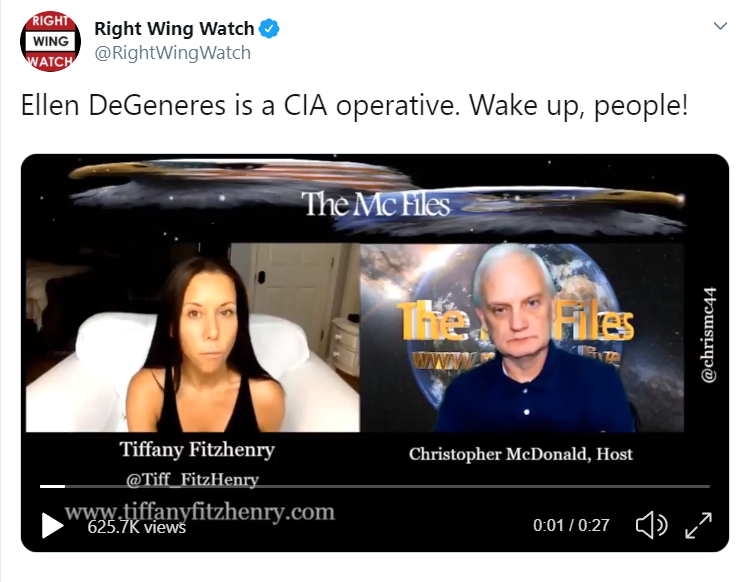
Figure 3: Tweet by Right Wing Watch about DeGeneres
This video was retweeted 570 times and got around 1,500 likes. One important actor in this story responded to this video and that is Andy Lassner. He responded to the video in multiple tweets, joking about Ellen also being “Q” (referring to the QAnon conspiracy theory) and making fun of other theories presented by FitzHenry, who he jokingly calls “TiffTiff”. However, it is important to note that Rightwingwatch and Lassner are sharing this concent with a clear eye to ridiculing and satirizing the association between DeGeneres and the CIA. In order to make distinctions between different groups and their stance regarding the issue, we should use the methods of issue mapping.
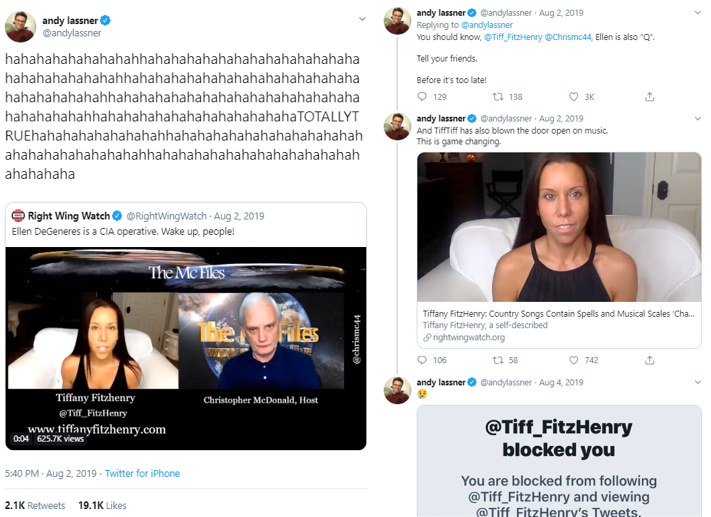
Figure 4: Lassner's interactions on Twitter
Analyzing the controversy through issue mapping
The now-removed tweet by Eric Trump about DeGeneres being part of the Deep State naturally went viral, and many responded to it. To analyze these parties and opinions involved in this conspiracy theory, this paper uses issue mapping. This kind of analysis is based on the Actor-Network Theory (ANT) developed by scholar Bruno Latour. ANT holds that social forces cannot be used to explain social phenomena, but strictly empirical analysis should be undertaken to describe rather than explain social activity. More technically, this can be described as a “material-semiotic” method as it maps relations that are simultaneously material (between things) and semiotic (between concepts). In this case, it allows us to study the social interactions and find the actors and issues involved in a controversy by mapping the dynamics and relationships between the components of that controversy.
First of all, who are the dominant voices? In this conspiracy theory, multiple individuals play a big role. Eric Trump is one of them, of course, as he seems to have made the biggest impact with his tweet. His tweet caused many discussions online and gave rise to many online articles.
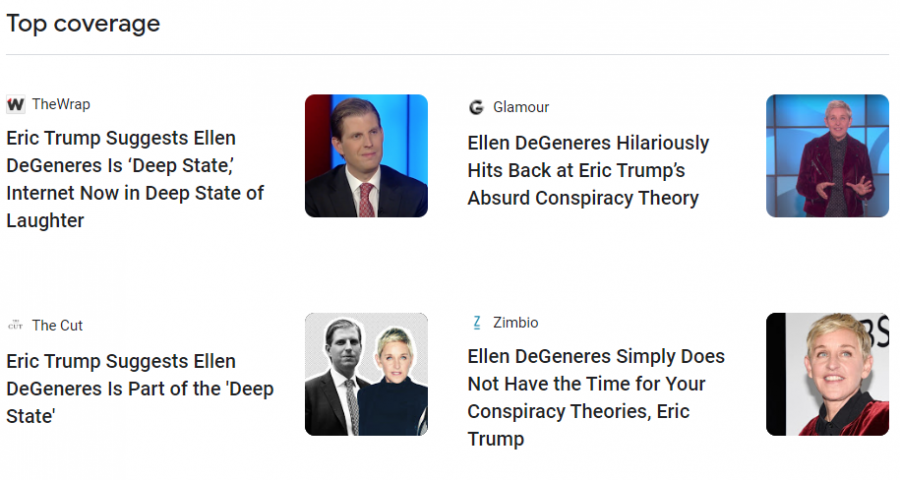
Figure 5: Articles on Trump's tweet about DeGeneres
Another dominant voice is that of Ellen DeGeneres herself as she quickly responded to Eric Trump on her talk show. Since she is a world-famous talk show host, her talk show reaches many people all over the world. The video excerpt from her talk show in which she responds to Eric Trump currently has more than 1,2 million views on YouTube.
Another important actor in this theory is Ellen's executive producer, Andy Lassner. As mentioned above, he still discusses the conspiracy theory in his tweets jokingly. He also made fun of Tiffany FitzHenry, another essential voice when it comes to this conspiracy theory. FitzHenry has written an article about DeGeneres being a CIA operative, but she also interacted with the Right Wing Watch Twitter account about the issue.
Next up, whose concern is this issue? Who is in the issue space? Here, we can distinguish between the Program and the Anti-Program. Eric Trump and Tiffany FitzHenry are the most essential voices for the Program. That is, they support the conspiracy theory that Ellen DeGeneres is not just a talk show host, but also a CIA operative. Part of the Anti-Program are then the Right Wing Watch, Ellen DeGeneres herself, and Andy Lassner, who are against the conspiracy theory. When looking at the tweets posted about this topic, it is noticeable that tweets by Lassner have been shared more than, for example, those by Trump and FitzHenry. This seems to show that there is a bigger group of people that is part of the Anti-Program. This is also evident in the articles shown above. They make fun of Eric Trump’s “absurd” conspiracy and do not take it seriously.
The people that are against this conspiracy theory have a similar issue language, as they often seem to joke about it and they generally do not take it seriously.
The third point of analysis is commitment: how dedicated are actors to this issue? When Trump posted his tweet in January 2018, DeGeneres responded to it. But after that, the talk show host has made no mention of it ever again. Her executive producer Andy Lassner, however, has mentioned it multiple times. His tweets shown in Figure 3 above are dated August 2019. Lassner has responded to threads multiple times, and his responses have then caused his followers to respond. Tiffany FitzHenry has also made multiple comments, articles, and videos about Ellen DeGeneres, one of the latest being from October 2019. As you can see in the figure below, Ellen’s connection to Deep State was googled most between the 1st and 6th of January in 2018. This is when Eric Trump posted his tweet. The topic has not been discussed as much since, and the last “peak” was in October 2019, when FitzHenry posted her last video on Ellen DeGeneres. The relevance of the topic has worn off, and most actors are not still dedicated enough to support or debunk it.
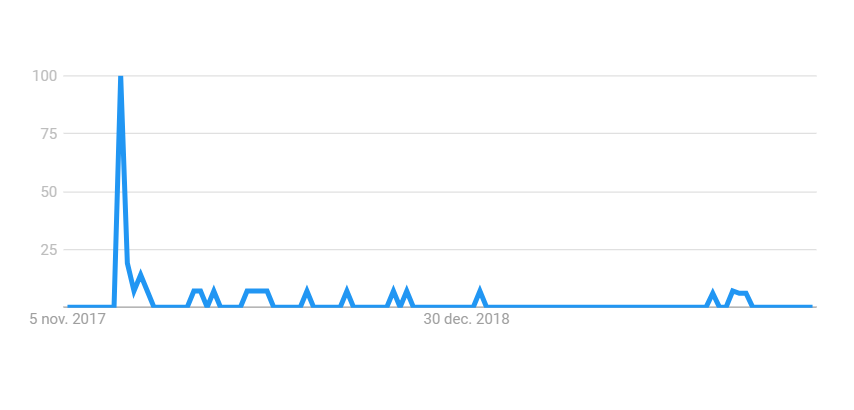
Figure 6: "Deep State Ellen DeGeneres" in Google Trends
The positioning of the actors connected to this issue is also interesting. The people that are against this conspiracy theory have a similar issue language, as they often seem to joke about it and they generally do not take it seriously. This is most visible in DeGeneres’ response and Andy Lassner’s tweets. However, the people that support this theory want to convince others to believe in their theory, and therefore, their language is very serious. They see the Deep State as a serious issue and Ellen DeGeneres is seen as part of it.
When it comes to the last point of analysis, alignment, we discuss how groups are formed around this issue. For this, we can refer back to the points discussed earlier. The issue language of the Anti-Program is very clear, as it consists mostly of jokes. This group is formed through their interactions: they laugh about the conspiracy theory together. The Program, on the other hand, is formed by supporters of Eric Trump and Right-Wing figures like Tiffany FitzHenry. They want people to “wake up” and realize what the truth is according to these actors.
In conclusion
As we have seen, a simple tweet by Eric Trump created a whole new social controversy. This interesting case of a conspiracy theory has multiple involved actors, who all differ in their stance and dedication, and it shows how different media users deal with fact and fiction. Trump and FitzHenry are the dominant voices for the Program, while DeGeneres and Lassner are the dominant voices for the Anti-Program. Ellen DeGeneres herself does not seem to care anymore, but this seems to be in contrast with her executive producer, who regularly refers back to the conspiracy theory to make a joke out of it. FitzHenry is also still relatively active when it comes to trying to expose DeGeneres for her connection to the CIA, while Eric Trump has removed his tweet. In the end, even though the conspiracy theory is still alive and well, it does not seem to make much of a difference for the key figures involved.
References
FitzHenry, T. (2019, October 13). Behind The Illusion; Ellen Degeneres. Tiffany FitzHenry.
Latour, B. (2005). Reassembling the social: An introduction to actor-network theory. Oxford: Oxford University Press.
Michaels, J. D. (2019, February 19). Trump and the “Deep State”. Foreign Affairs.
O'Neil, P. (2013). The deep state: An emerging concept in comparative politics. Ssrn Electronic Journal.
Wikipedia contributors. (2019, December 31). Deep state in Turkey. Wikipedia.